Best Books on Bash Scripting to Buy in February 2026
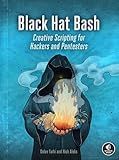
Black Hat Bash: Creative Scripting for Hackers and Pentesters


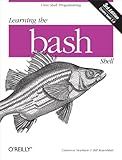
Learning the bash Shell: Unix Shell Programming (In a Nutshell (O'Reilly))
- AFFORDABLE PRICES ON QUALITY USED BOOKS FOR SAVVY READERS.
- ECO-FRIENDLY CHOICE-REDUCE WASTE WHILE ENJOYING GREAT READS.
- CAREFULLY INSPECTED FOR QUALITY TO ENSURE A SATISFYING PURCHASE.


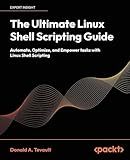
The Ultimate Linux Shell Scripting Guide: Automate, Optimize, and Empower tasks with Linux Shell Scripting


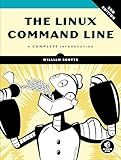
The Linux Command Line, 2nd Edition: A Complete Introduction


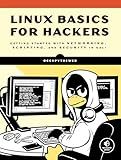
Linux Basics for Hackers: Getting Started with Networking, Scripting, and Security in Kali


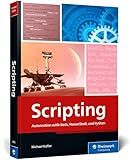
Scripting: Automation with Bash, PowerShell, and Python—Automate Everyday IT Tasks from Backups to Web Scraping in Just a Few Lines of Code (Rheinwerk Computing)



Bash Pocket Reference: Help for Power Users and Sys Admins


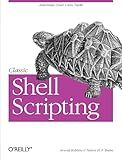
Classic Shell Scripting


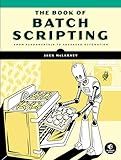
The Book of Batch Scripting: From Fundamentals to Advanced Automation


In Bash, the asterisk (*) is known as a wildcard character that can be used for pattern matching in file and directory names. When the asterisk is used in a command, it represents any sequence of characters or none at all.
For example, if you want to list all files in a directory that start with "test", you can use the command "ls test*". This will match all files that start with "test" followed by any characters.
It's important to note that the asterisk can match multiple characters, so it's possible to match more than one file with a single wildcard. Additionally, if you want to match a literal asterisk character in a filename, you can escape it using a backslash (*).
Overall, Bash provides powerful pattern matching capabilities using the asterisk wildcard character, allowing you to easily manipulate and work with files and directories based on specific patterns.
How to perform pattern matching using '*' in bash?
Pattern matching using '*' in bash can be done using the case statement. Here's an example:
#!/bin/bash
read -p "Enter a string: " input
case $input in hello*) echo "The string starts with 'hello'" ;; *world) echo "The string ends with 'world'" ;; *foo*) echo "The string contains 'foo'" ;; *) echo "No matches found" ;; esac
In the above script, the case statement is used to check the input string against different patterns. The '*' character is used as a wildcard to match any sequence of characters.
You can add more patterns to match against the input string by adding more pattern) in the case statement. The *) at the end of each pattern block is used as a fallback for cases where none of the specified patterns match.
You can run this script in your terminal and enter different strings to see how the pattern matching works using '*'.
How to escape the '*' character in bash for literal matching?
To escape the * character in bash for literal matching, you can use a backslash \ before the * character. Here is an example:
ls \*
This command will list all files and directories in the current directory that have a literal * character in their name. The backslash escapes the * character so that it is treated as a literal character and not as a wildcard for pattern matching.
What is the significance of '*' in bash commands?
In bash commands, the '' symbol is used as a wildcard character. It represents zero or more characters in a file name or a string of text. When used in commands like 'ls' or 'rm', the '' symbol allows users to perform operations on multiple files that match a certain pattern or criteria. For example, 'ls *.txt' would list all files with a .txt extension, and 'rm .log' would delete all files with a .log extension. The '' symbol is a powerful tool for performing operations on multiple files quickly and efficiently in the bash shell.
